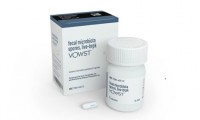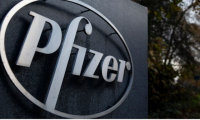-
Perrigo’s OTC birth control pill aces FDA expert meeting
- Source: drugdu
- 127
- May 12, 2023
-
GSK’s RSV vaccine approved by FDA for older adults
- Source: drugdu
- 145
- May 12, 2023
-
FDA completes inspection of Nexus’ manufacturing facility in US
- Source: drugdu
- 125
- May 10, 2023
-
Manufacturing operations for Eli Lilly, Rentschler reprimanded by FDA
- Source: drugdu
- 189
- May 8, 2023
-
After FDA rejection, Gilead’s Hepcludex looks set for full EU nod
- Source: drugdu
- 411
- May 8, 2023
-
Protalix, Chiesi challenge Sanofi with EU approval for Fabry disease med as FDA decision looms
- Source: drugdu
- 185
- May 8, 2023
-
Formus Labs’ Hip Surgery Planning Software Expands with FDA Clearance
- Source: drugdu
- 129
- May 7, 2023
-
FDA issues new draft guidance on decentralised clinical trials
- Source: drugdu
- 125
- May 6, 2023
-
Seres’s Bacteria in a Pill Becomes First FDA-Approved Oral Microbiome Therapy
- Source: drugdu
- 176
- May 2, 2023
-
FDA clears Pfizer’s pneumococcal vaccine for infants and children
- Source: drugdu
- 232
- May 1, 2023
your submission has already been received.
OK
Subscribe
Please enter a valid Email address!
Submit
The most relevant industry news & insight will be sent to you every two weeks.













